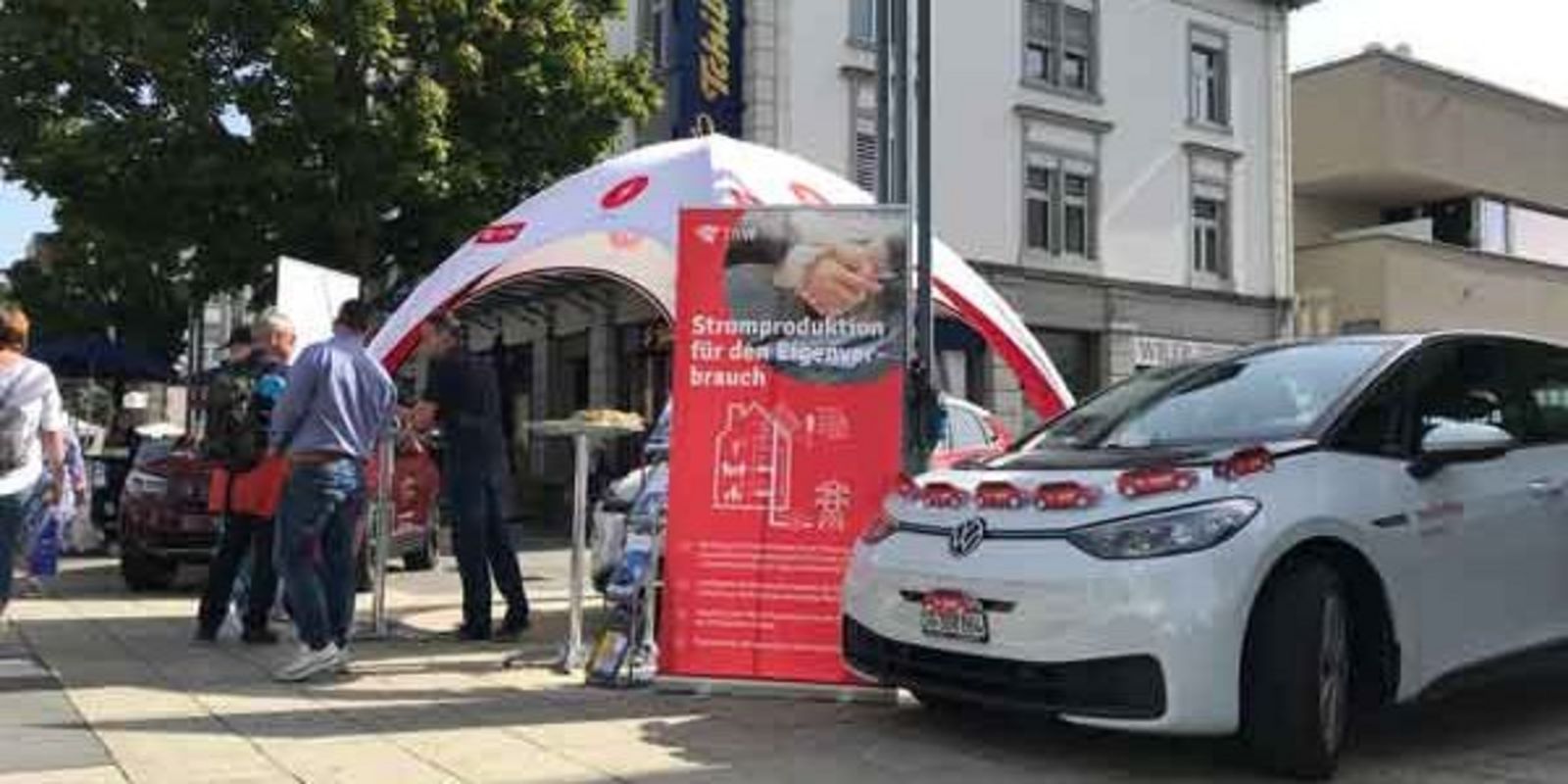The city of Wil is aiming high: the entire urban district is to be climate-neutral by 2050. Transportation is one area where a number of measures are planned to make this happen. For example, the Wil municipal authorities are currently offering all residents a one-year Mobility subscription. Those who take part in the campaign Wil teilt ("Wil shares") pay no subscription fee for one year: they are only charged for their actual use of the vehicles. Key Account Manager Magdalena Balogh is delighted, too: “We’re joining forces to pursue a number of goals: we want less traffic and fewer second vehicles on our roads – but we also want maximum freedom to move without any obligations.”
The aim is to convince as many residents as possible of the benefits of shared mobility so as achieve a beneficial impact on the environment. The incentive is having an effect, too: since the campaign began in September 2021, the number of Mobility subscriptions in Wil has increased from 350 to over 600. In addition, 70 municipal employees use the e-vehicles for business trips. “We’re satisfied with the initial response,” says Magdalena Balogh. “We’ve been able to create the first fully electric Mobility city in Switzerland and have received nothing but positive feedback from users.” The past months have shown that an “electric city” is absolutely feasible – even in 2022. “This is encouraging as it indicates that we’re on the right track with our strategy.”
![[Translate to English:] Wiler Stadtrat Andreas Breitenmoser und Mobility Key Account Managerin Magdalena Balogh an der Tankstelle von einem der 8 E-Mobility Car-Sharing Autos in Wil.](/fileadmin/_processed_/8/5/csm_Mobility-Neo-Magazin-Wil_2_cdff0ed79c.jpg)
The proof of the pudding is in the eating
The pilot project forms part of the MONAMO Wil programme (“Model City for Sustainable Mobility”) which is co-sponsored by the Swiss Federal Office of Energy. The cost of subscriptions and most of the charging infrastructure is covered by the municipal utility company Technische Betriebe Wil TBW. As Stefan Grötzinger explains – head of Wil city energy department and the driving force behind the sustainability package in Wil: “This type of offer is new for middle-class Wil with its high level of car ownership. “We’re proud to be a model city for sustainable mobility.” The MONAMO programme offering “E-mobility for all” calls on the entire population to strike out on a path that is still unfamiliar. The city is deliberately following the approach: “the proof of the pudding is in the eating”. With low-threshold offers, it is trying to cater to people’s real-life needs while at the same time showing them that a sustainable lifestyle can be fun.
Change is fun!
“Electric car sharing is a perfect fit for Wil and will help us achieve our ambitious climate goals,” says Grötzinger. But things won’t be easy. “A net-zero society is only possible if people change their behaviour.” And this will take time: services have to be affordable, especially for the younger population.
In the context of sustainable mobility, Wil has opted not just for e-car sharing but also an on-demand bus in the evening that only goes where it is needed. Night owls simply use an app to have it come to a virtual stop. And there’s a bicycle home-delivery shopping service that also involves recyclable waste collection. What is more, Wil residents can rent e-cargo bikes and large transportation trailers weighing up to 140 kilos. “Various factors have to fit together if you want to get an ambitious project like this off the ground,” says Stefan Grötzinger. "It needs intrinsically motivated partners and a project group that is as lean as possible but also strong.” All this applies to the projects described here.
And Magdalena Balogh of Mobility has nothing but positive words for her project partners in the city of Wil: “It takes courage and perseverance to make pioneering projects fly. This has been a best-case scenario: with similar strategies in terms of sustainability, a high level of motivation and a record-breaking pace of implementation, we’ve shown that we really do work well together.”

![[Translate to English:]](/fileadmin/_processed_/9/e/csm_Mobility-Neo-Magazin-Wil_e75aea2c8f.jpg)
Your comment